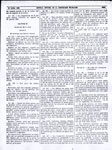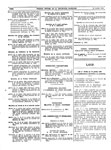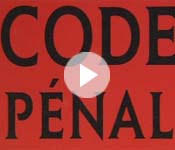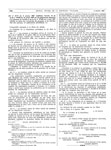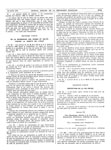The Rule of Law is a living, evolving thing that creates judicial, but also political and moral stakes.
The relations between law and a structured society are complex, as the history of each law illustrates.
The difficulty, indeed impossibility, of giving an objective definition of ‘good’ or ‘bad’ morals runs through all judicial debate.
Other motives for condemning a book - piracy, insult to an institution etc. - are just as difficult to pin down.
Even a summary examination, of judicial texts about books and publishing, and of a certain number of well-known cases, shows that ‘the censors’ confusion proves that the modalities of censorship are ill-adapted to a context that the “evolution of morals” – as the saying goes - has radically changed.’ (Danièle Lochak).
This could also be said of other domains.
‘The principle of censorship remains that of assembling repressive texts, without repealing those that are no longer applicable. Because a law prohibiting something can always come in handy.’ Emmanuel Pierrat, Le Livre noir de la censure, Seuil, 2008, p. 15


